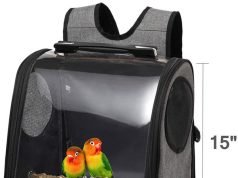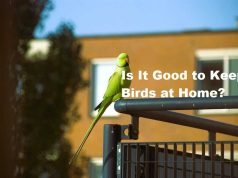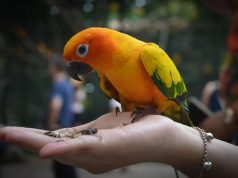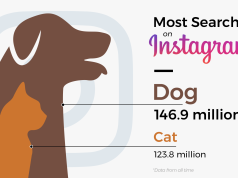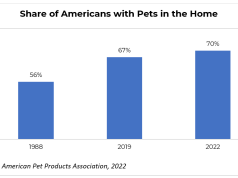Optimizing Your Birds Well-Being: A Guide to Nutritional Bliss
Optimizing Your Birds Well Being: Tips for keeping your pet bird happy and healthy through proper nutrition, including the importance of a balanced diet, essential food types, creating a balanced diet, signs of a healthy bird, common health issues related to nutrition, and setting up a safe environment.
Table of Contents
I. Importance of Proper Nutrition for Pet Birds Well Being
Proper nutrition plays a fundamental role in ensuring the health and happiness of pet birds. It is not just about providing food; it’s about offering a well-rounded diet that meets all their nutritional needs. Birds require a balanced mix of nutrients to thrive, including water, proteins, carbohydrates, lipids, minerals, and vitamins. For example, proteins are crucial for muscle development, while minerals like calcium are essential for bone strength.
A varied diet is key to preventing nutrient deficiencies in pet birds. To illustrate, offering a selection of fresh fruits, vegetables, nuts, and seeds can provide a spectrum of essential vitamins and minerals that are necessary for a bird’s overall well-being. By incorporating diversity into their meals, bird owners can ensure that their feathered companions receive a broad range of nutrients, promoting optimal health and vitality. Additionally, a balanced diet not only supports physical health but also contributes to the bird’s mental stimulation and overall happiness.
 II. Types of Foods Essential for a Bird’s Diet
II. Types of Foods Essential for a Bird’s Diet
When considering the essential foods for a bird’s diet, it is crucial to include a variety of food groups to ensure they receive all the necessary nutrients for optimal health. While seeds are a common food choice for birds, relying solely on seeds can result in nutrient deficiencies, obesity, and various health issues. To provide a more balanced diet, incorporating grains, fruits, vegetables, protein sources, and even dairy products can help meet a bird’s nutritional requirements.
One convenient way to offer a well-rounded diet to pet birds is through the use of pellets. Pellets are formulated to contain a mix of essential nutrients, making them a convenient option to ensure that birds are receiving a balanced diet. Additionally, nuts and seeds can serve as excellent sources of healthy fats for birds, contributing to their overall well-being. By including a variety of these essential foods in a bird’s diet, pet owners can promote good health and prevent nutritional deficiencies in their feathered companions.
III. Creating a Balanced Diet for Pet Birds
When creating a balanced diet for your pet bird, it’s essential to include a variety of fresh fruits, vegetables, and protein sources. For instance, you can offer your bird a mix of [dark, leafy greens](https://www.petassure.com/new-newsletters/how-to-keep-your-pet-bird-happy-healthy-and-safe) like kale and spinach, along with fruits such as apples, berries, or oranges to provide a range of essential vitamins and minerals. Additionally, incorporating protein sources like cooked chicken, eggs, or legumes can help meet your bird’s dietary needs and promote overall health and well-being. By offering a diverse selection of foods, you can ensure that your pet bird receives a well-rounded and nutritious diet to thrive both physically and emotionally.
To maintain your parrot’s wellness, consider sprouting seeds and introducing new foods gradually into their diet. Sprouting seeds can enhance the nutritional value of seeds by increasing enzyme activity and breaking down antinutrients, making them more digestible for your bird. Introducing new foods like whole grains, vegetables, or even small amounts of safe human foods like quinoa or sweet potatoes can provide enrichment and prevent dietary monotony. Remember to monitor your bird’s response to new foods and consult your avian veterinarian if you have any concerns about their dietary changes. These steps can contribute to a more balanced and enjoyable eating experience for your feathered companion.
In addition to incorporating a variety of foods, it’s crucial to offer calcium-rich options like leafy greens to support strong bones in pet birds. Calcium plays a crucial role in maintaining skeletal health, especially in egg-laying female birds that have increased calcium requirements. Providing sources of calcium such as broccoli, bok choy, or even cuttlebone can help prevent issues like egg-binding and ensure your pet bird’s bones remain healthy and strong. By paying attention to the nutritional content of your bird’s diet and making informed choices, you can help them lead a happy and healthy life.
IV. Signs of a Healthy Bird
Recognizing the signs of a healthy bird is crucial for bird owners to ensure their pet’s well-being. Shiny feathers are not just aesthetically pleasing but also a key indicator of a bird’s health. Feathers that are vibrant in color and free from any signs of damage or plucking suggest that the bird is in good condition. Bright, alert eyes are another positive sign. Clear and bright eyes show that the bird is attentive, responsive, and free from any underlying health issues.
In addition to outward physical signs, a healthy bird will display active behavior. This includes flying around the cage, hopping from perch to perch, and engaging in play with toys. A bird that shows curiosity, energy, and a zest for life is likely in good health. Furthermore, a good appetite is a positive indication of a healthy bird. Regular eating habits, proper digestion, and vocalizations such as chirping or singing are all positive signs that your feathered friend is thriving.
Moreover, maintaining proper grooming habits is essential for bird health. Regular preening and cleaning of feathers are natural behaviors for birds, and a healthy bird will consistently groom itself to maintain its plumage. A bird with clean, well-kept feathers is likely in good health and free from issues that may impede its grooming routine. Additionally, smooth beak and nails are signs of a healthy bird. Overgrown beaks or nails can indicate a lack of proper nutrition or health problems, so observing these features can help bird owners monitor their pet’s well-being.
 V. Common Health Issues in Pet Birds Related to Nutrition
V. Common Health Issues in Pet Birds Related to Nutrition
Ensuring that your pet bird receives a well-rounded diet is crucial to preventing common health issues related to nutrition. Obesity is a prevalent concern among pet birds and can result from a diet high in fatty seeds and nuts. By offering a balanced diet that includes a variety of fresh fruits, vegetables, and protein sources, you can help your bird maintain a healthy weight and reduce the risk of obesity-related complications. For example, incorporating leafy greens like kale or spinach in your bird’s diet can provide essential nutrients while keeping their weight in check.
Moreover, a lack of dietary variety can lead to nutrient deficiencies in pet birds, impacting their overall health and well-being. To address this issue, consider introducing new foods regularly and rotating different fruits, vegetables, and protein sources to ensure your bird receives a wide range of essential nutrients. For instance, offering your bird a mix of pellets, seeds, and fresh foods like berries or bell peppers can help prevent deficiencies and support their immune system.
Excessive protein consumption is another common health issue in pet birds that can have adverse effects on their health. Birds that consume too much protein may experience kidney problems and other health complications. It’s essential to provide a balanced diet that includes the right amount of protein suitable for your bird’s species. By offering a varied diet that includes appropriate protein sources like lean meats or legumes, you can help your bird maintain optimal health and prevent the negative consequences of excessive protein intake.
VI. Setting Up a Safe Environment for Pet Birds
Ensuring a safe and stimulating environment for your pet bird is essential for their overall well-being. When setting up your bird’s cage, consider incorporating a variety of elements that cater to their mental and physical needs. Include ropes, ladders, perches of different materials and textures, and a selection of toys to keep your bird engaged and prevent boredom. For example, a mix of wooden perches, chewable toys, and foraging opportunities can help mimic your bird’s natural habitat, promoting mental stimulation and physical activity.
Additionally, the location of your bird’s cage within your home plays a crucial role in their happiness and health. Placing the cage in a lively and active area where your bird can observe household activities can prevent feelings of isolation and loneliness in your feathered friend. By being part of the daily hustle and bustle of your home, your bird can feel integrated into the family dynamics, reducing stress and promoting social interaction. Moreover, exposure to natural light and varying sounds can contribute to your bird’s mental well-being and overall contentment.
To further enhance your bird’s environment, consider rotating and introducing new cage accessories and toys regularly. Birds are intelligent creatures that thrive on novelty and challenges, so providing them with different forms of entertainment can prevent behavioral issues and encourage mental engagement. By changing the layout of the cage, adding new toys, or incorporating puzzle feeders, you can keep your pet bird mentally stimulated and physically active. Remember that a well-stimulated bird is a happy bird, and a happy bird is more likely to exhibit positive behaviours and enjoy a higher quality of life.
You May Like Creating a Haven for Feathered Friends: A Guide to Building a Bird-Friendly Home

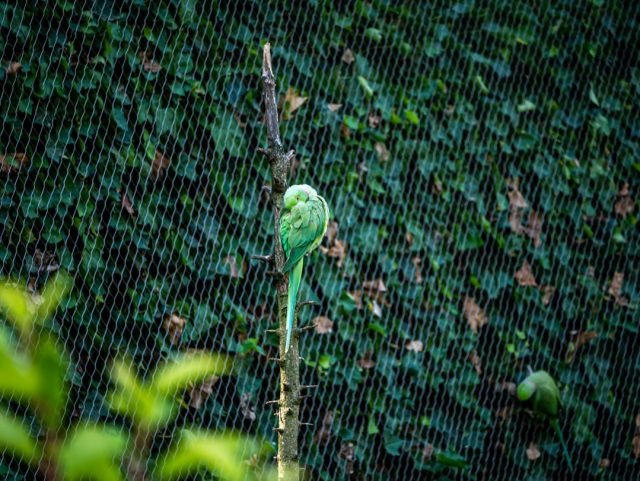
 II. Types of Foods Essential for a Bird’s Diet
II. Types of Foods Essential for a Bird’s Diet V. Common Health Issues in Pet Birds Related to Nutrition
V. Common Health Issues in Pet Birds Related to Nutrition